Protests, poisoning and prison: The life of Alexei Navalny and his opposition to Vladimir Putin
Alexei Navalny was a fierce critic of Russian president Vladimir Putin and has reportedly died behind bars in Arctic Circle prison
Your support helps us to tell the story
From reproductive rights to climate change to Big Tech, The Independent is on the ground when the story is developing. Whether it's investigating the financials of Elon Musk's pro-Trump PAC or producing our latest documentary, 'The A Word', which shines a light on the American women fighting for reproductive rights, we know how important it is to parse out the facts from the messaging.
At such a critical moment in US history, we need reporters on the ground. Your donation allows us to keep sending journalists to speak to both sides of the story.
The Independent is trusted by Americans across the entire political spectrum. And unlike many other quality news outlets, we choose not to lock Americans out of our reporting and analysis with paywalls. We believe quality journalism should be available to everyone, paid for by those who can afford it.
Your support makes all the difference.Alexei Navalny, a thorn in the side of the Kremlin and Russia’s most prominent political dissident, has died in prison at the age of 47.
Navalny, a fierce critic of Russian president Vladimir Putin, had been sentenced to 19 years in a penal colony around 40 miles of the Arctic Circle in charges widely thought to be politically motivated.
The 47-year-old felt unwell after a walk at the jail and lost consciousness. An ambulance arrived to try to rehabilitate him, but he died, according to prison authorities.
Navalny was moved from his former prison in the Vladimir region of central Russia in December to the “special regime” penal colony — the highest security level of prisons in Russia.
The political agitator has been behind bars since January 2021 when Navalny had been behind bars since January 2021, when he returned to Moscow after recuperating in Germany from nerve agent poisoning that he blamed on the Kremlin.
Before his arrest, he campaigned against official corruption, organized major anti-Kremlin protests and ran for public office.
Here's a look at Navalny’s life, political activism and the charges he has faced through the years:
1976
4 June 4 — Navalny is born in a western part of the Moscow region.
1997
Graduates from Russia’s RUDN university, where he majored in law; earns a degree in economics in 2001 while working as a lawyer.
2004
Forms a movement against rampant overdevelopment in Moscow, according to his campaign website.
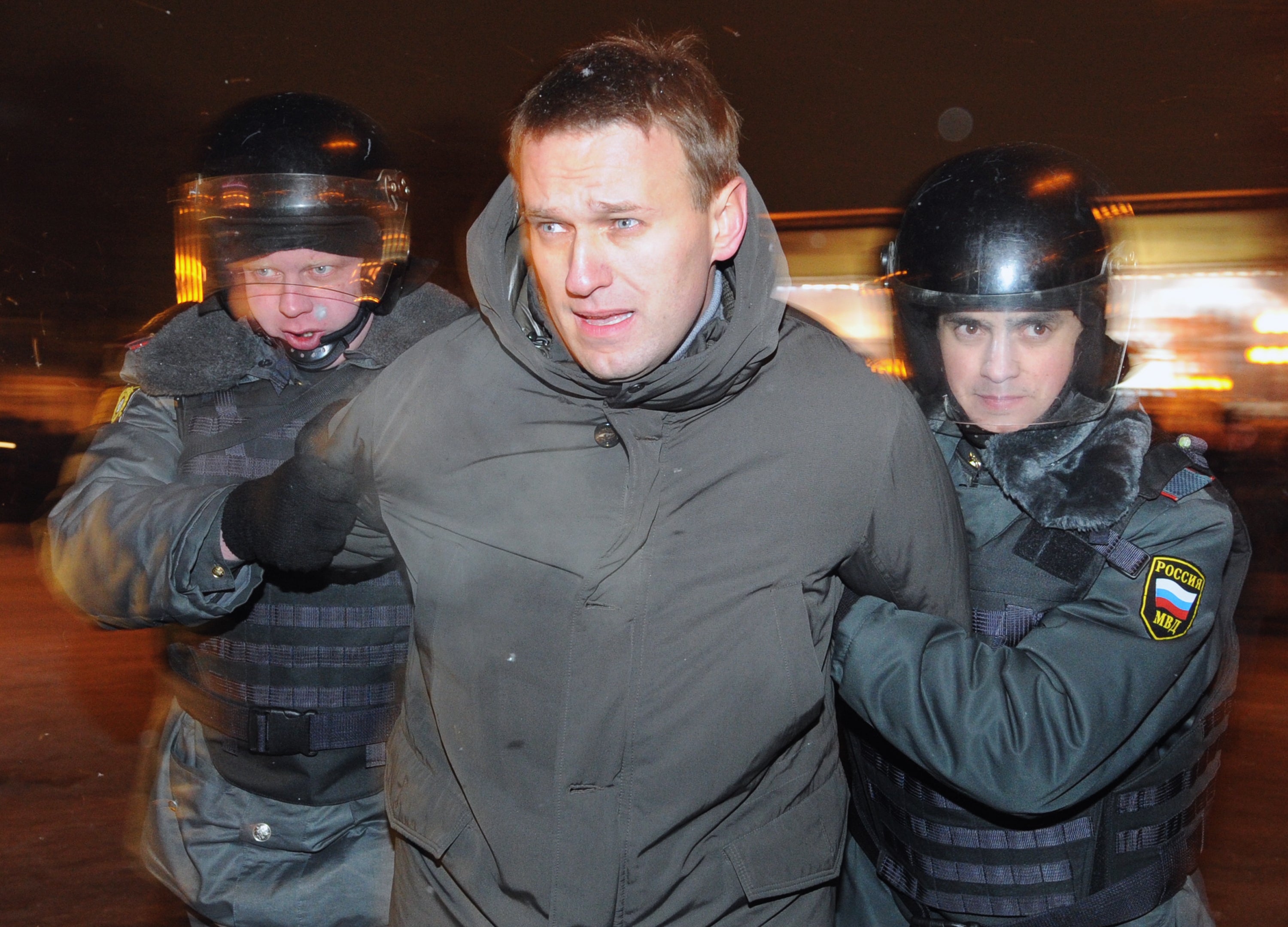
2008
Gains notoriety for alleging corruption in state-run corporations, such as gas giant Gazprom and oil behemoth Rosneft, through his blogs and other posts.
2010
Founds RosPil, an anti-corruption project run by a team of lawyers that analyzes spending of state agencies and companies, exposing violations and contesting them in court.
2011
December- Participates in mass protests sparked by reports of widespread rigging of Russia’s parliamentary election, and is arrested and jailed for 15 days for “defying a government official.”
2012
March - Following Mr Putin’s reelection and inauguration, mass protests break out in Moscow and elsewhere. Navalny accuses key figures, including then-Deputy Prime Minister Igor Shuvalov and Chechnya’s strongman leader, Ramzan Kadyrov, of corruption.
July - Russia’s Investigative Committee charges Navalny with embezzlement involving Kirovles, a state-owned timber company in the Kirov region, while acting as an adviser to the local governor. Navalny rejects the allegations as politically motivated.
December — The Investigative Committee launches another probe into alleged embezzlement at a Navalny-linked Russian subsidiary of Yves Rocher, a French cosmetics company. Navalny again says the allegations are politically motivated.
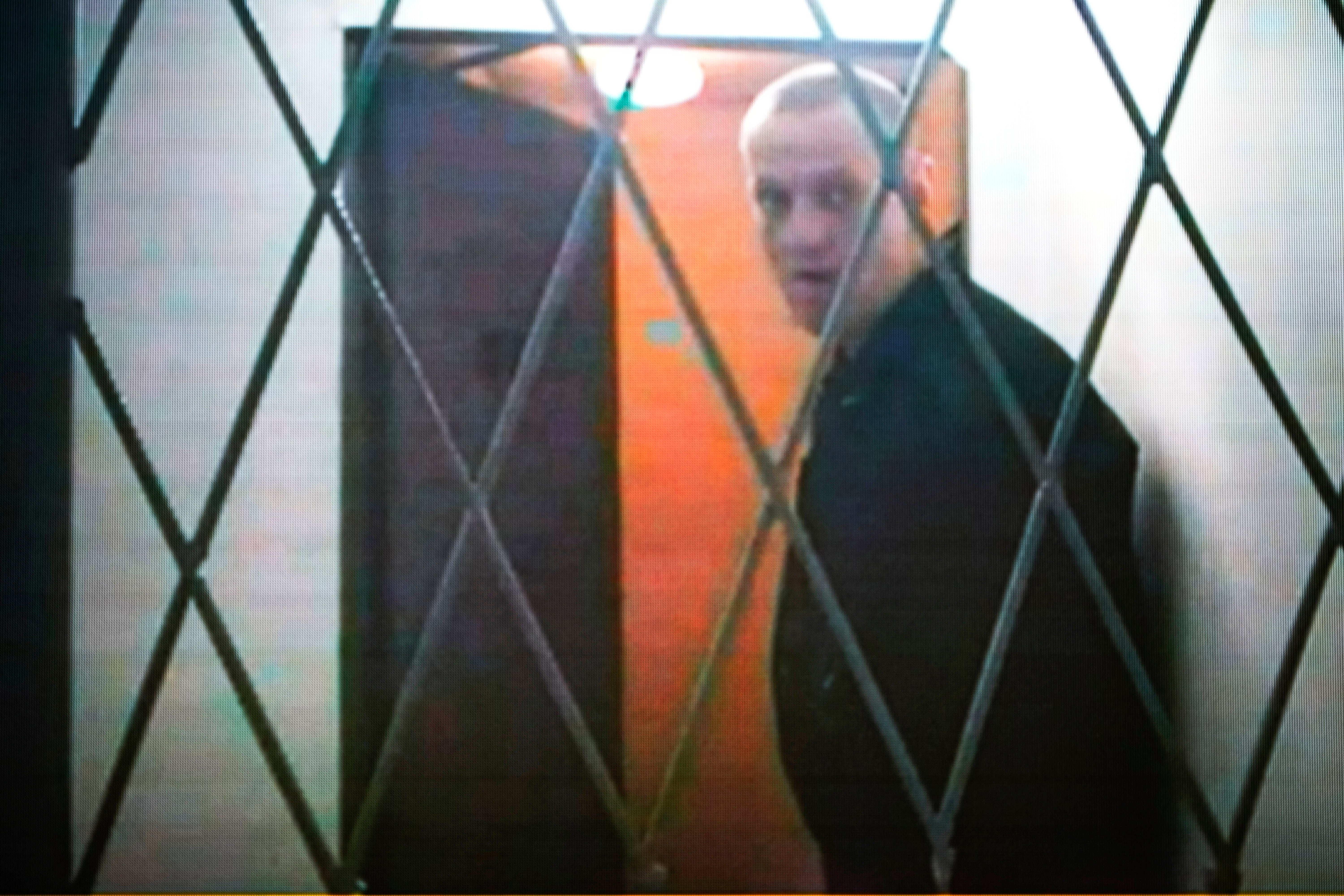
2013
Navalny runs for mayor in Moscow — a move the authorities not only allow but encourage in an attempt to put a veneer of democracy on the race that is designed to boost the profile of the incumbent, Sergei Sobyanin.
July - A court in Kirov convicts Navalny of embezzlement in the Kirovles case, sentencing him to five years in prison. The prosecution petitions to release Navalny from custody pending his appeal, and he resumes his campaign.
September — Official results show Navalny finishes second in the mayor’s race behind Sobyanin, with 27% of the vote, after a successful electoral and fundraising campaign collecting an unprecedented 97.3 million rubles ($2.9 million) from individual supporters.
October — A court hands Navalny a suspended sentence in the Kirovles case. February 2014 — Navalny is placed under house arrest in connection with the Yves Rocher case and banned from using the internet. His blog continues to be updated regularly, presumably by his team, detailing alleged corruption by various Russian officials.
December — Navalny and his brother, Oleg, are found guilty of fraud in the Yves Rocher case. Navalny receives a 3 ½-year suspended sentence, while his brother is handed a prison term. Both appeal to the European Court of Human Rights.
2015
December — Navalny’s Foundation for Fighting Corruption releases its first long-form video — a YouTube documentary called “Chaika,” which means “seagull” in Russian but is also the last name of then-Prosecutor General Yury Chaika.
The 44-minute video accuses him of corruption and alleged ties to a notorious criminal group and has piled up 26 million views on YouTube. Chaika and other Russian officials deny the accusations.
2016
February — The European Court of Human Rights rules that Russia violated Navalny’s right to a fair trial in the Kirovles case, ordering the government to pay his legal costs and damages.
November — Russia’s Supreme Court overturns Navalny’s sentence and sends the case back to the original court in the city of Kirov for review.
December — Navalny announces he will run in Russia’s 2018 presidential election.
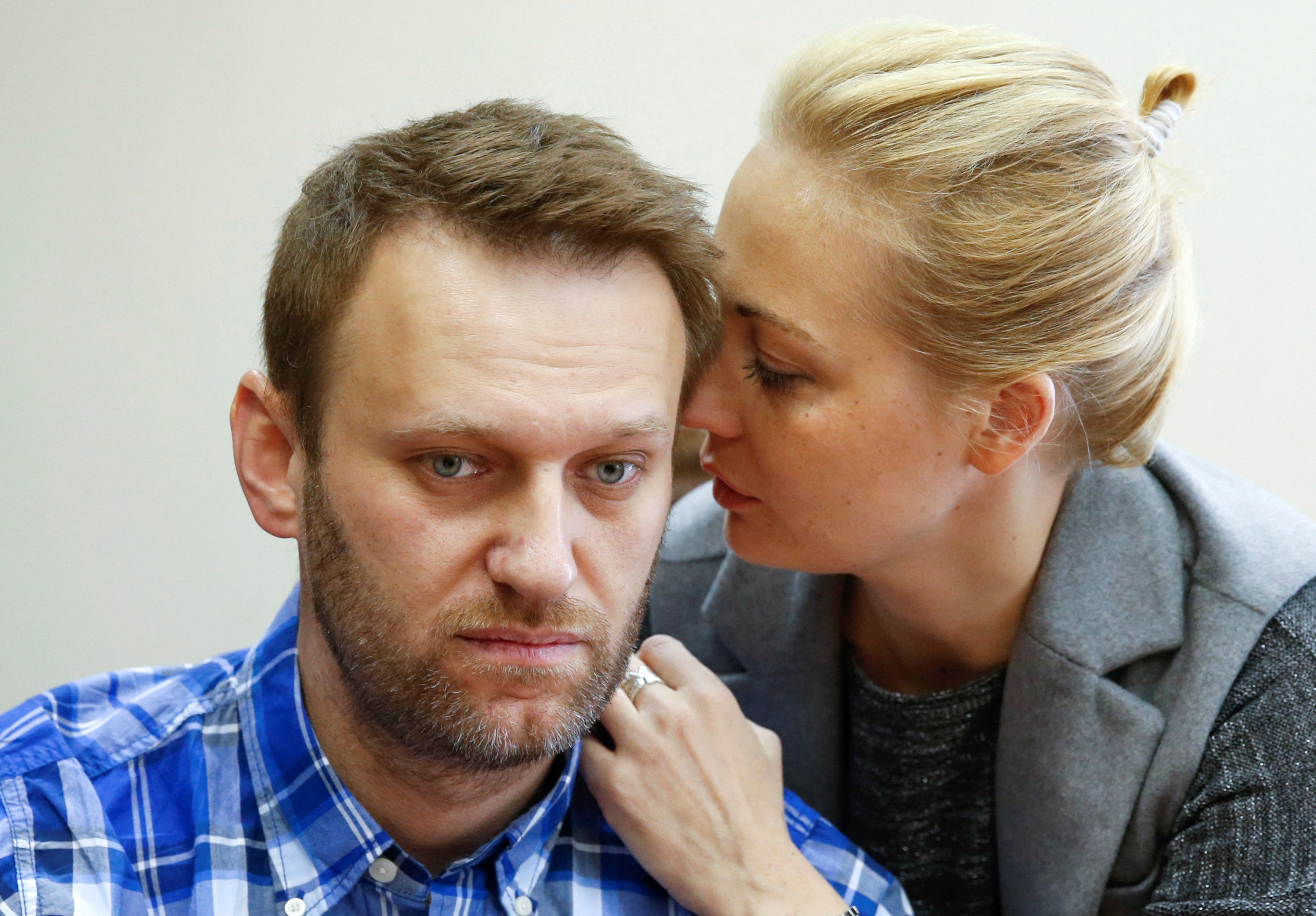
2017
February — The Kirov court retries Navalny and upholds his five-year suspended sentence from 2013.
March — Navalny releases a YouTube documentary accusing then-Prime Minister Dmitry Medvedev of corruption, getting over 7 million views in its first week. A series of anti-graft protests across Russia draw tens of thousands and there are mass arrests. Navalny tours the country to open campaign offices, holds big rallies and is jailed repeatedly for unauthorized demonstrations.
27 April — Unidentified assailants throw a green disinfectant in his face, damaging his right eye. He blames the attack on the Kremlin.
October — The European Court of Human Rights finds Navalny’s fraud conviction in the Yves Rocher case to be “arbitrary and manifestly unreasonable.”
December — Russia’s Central Electoral Commission bars him from running for president over his conviction in the Kirovles case, a move condemned by the EU as casting “serious doubt” on the election.
2019
July — Members of Navalny’s team, along with other opposition activists, are barred from running for Moscow city council, sparking protests that are violently dispersed, with thousands arrested. Navalny’s team responds by promoting the “Smart Voting” strategy, encouraging the election of any candidate except those from the Kremlin’s United Russia party. The strategy works, with the party losing its majority.
2020
Navalny seeks to deploy the Smart Voting strategy during regional elections in September and tours Siberia as part of the effort.
20 August — On a flight from the city of Tomsk, where he was working with local activists, Navalny falls ill and the plane makes an emergency landing in nearby Omsk. Hospitalized in a coma, Navalny’s team suspects he was poisoned.
22 August — A comatose Navalny is flown to a hospital in Berlin.
24 August — German authorities confirm Navalny was poisoned with a Soviet-era nerve agent. After he recovers, he blames the Kremlin, an accusation denied by Russian officials.
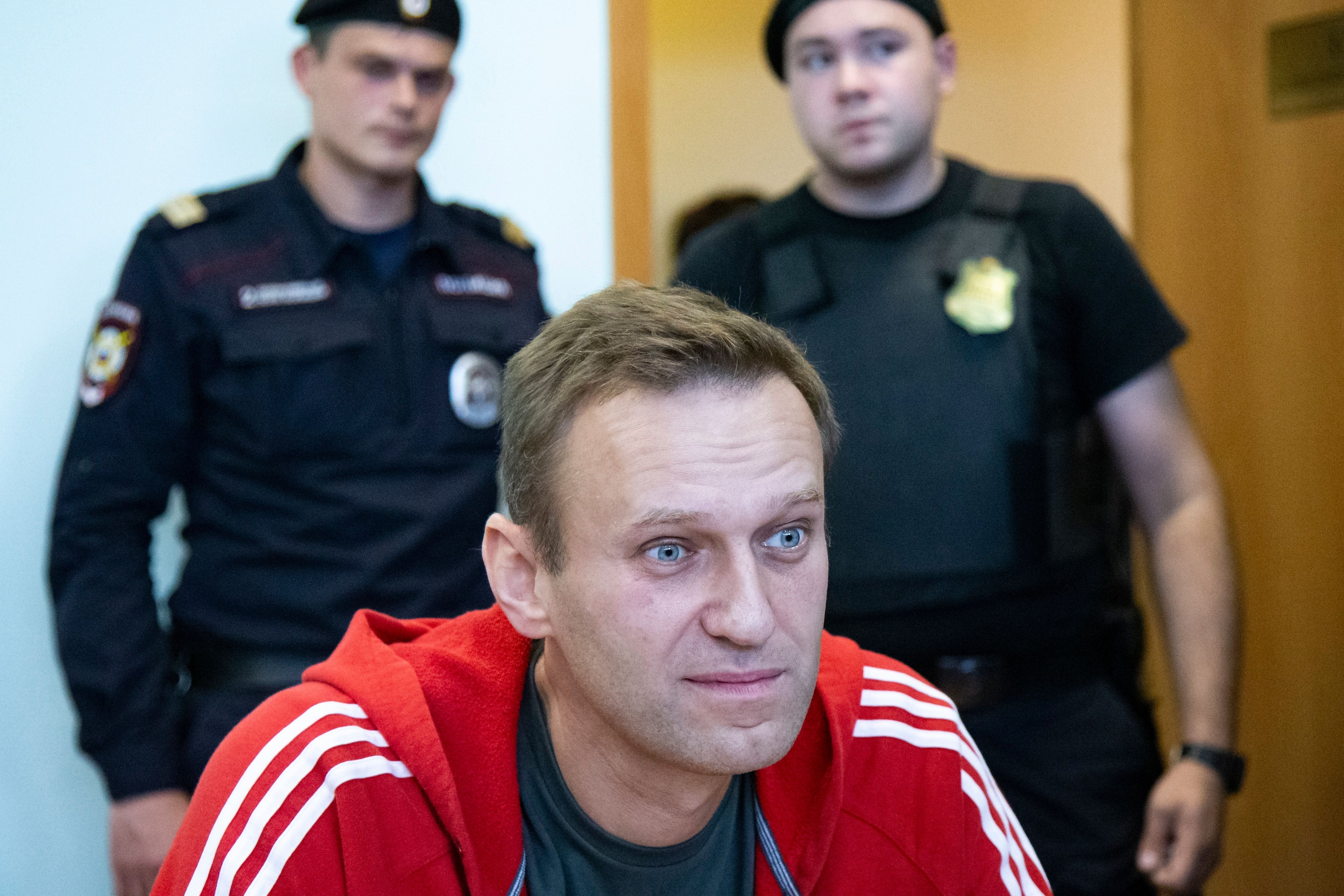
2021
17 January — After five months in Germany, Navalny is arrested upon his return to Russia, with authorities alleging his recuperation abroad violated the terms of his suspended sentence in the Yves Rocher case. His arrest triggers some of the biggest protests in Russia in years. Thousands are arrested.
2 February — A Moscow court orders Navalny to serve 2 ½ years in prison for his parole violation. While in prison, Navalny stages a three-week hunger strike to protest a lack of medical treatment and sleep deprivation.
June — A Moscow court outlaws Navalny’s Foundation for Fighting Corruption and about 40 regional offices as extremist, shutting down his political network. Close associates and team members face prosecution and leave Russia under pressure. Navalny maintains contact with his lawyers and team from prison, and they update his social media accounts.
2022
24 February — Russia invades Ukraine. Navalny condemns the war in social media posts from prison and during his court appearances.
22 March — Navalny is sentenced to an additional nine-year term for embezzlement and contempt of court in a case his supporters rejected as fabricated. He is transferred to a maximum-security prison in Russia’s western Vladimir region.
July — Navalny’s team announces the relaunch of the Anti-Corruption Foundation as an international organization with an advisory board including Francis Fukuyama, Anne Applebaum, and the European Parliament member and former Belgian Prime Minister Guy Verhofstadt.
Navalny continues to file lawsuits in prison and tries to form a labor union in the facility. In response, penitentiary officials start regularly placing him in solitary confinement over purported disciplinary violations such as failing to properly button his garment or to wash his face at a specified time.
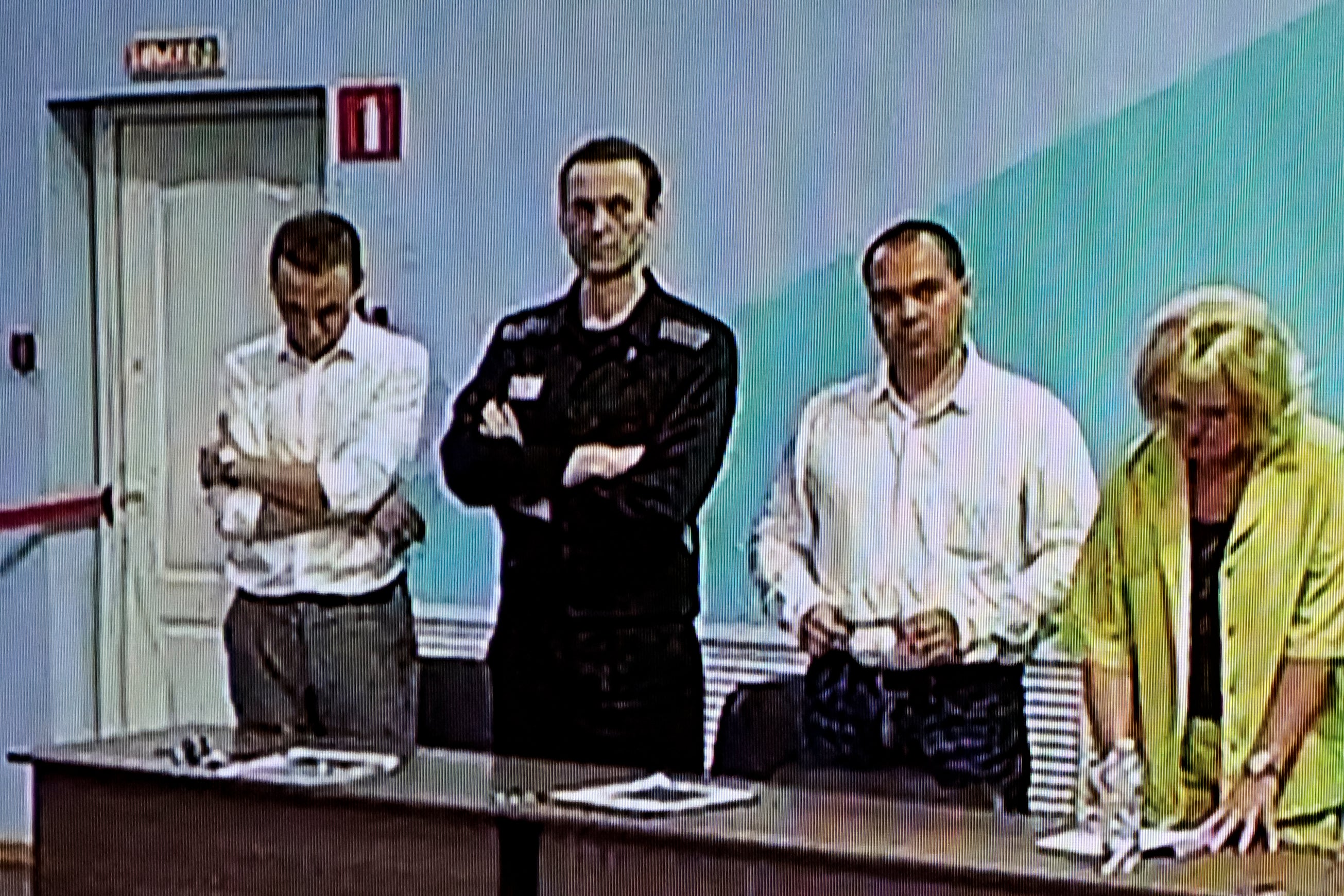
2023
Over 400 Russian doctors sign an open letter to Mr Putin, urging an end to what it calls abuse of Navalny, following reports that he was denied basic medication after getting the flu. His team expresses concern about his health, saying in April he had acute stomach pain and suspected he was being slowly poisoned.
12 March — “Navalny,” a film about the attempt on the opposition leader’s life, wins the Oscar for best documentary feature.
26 April — Appearing on a videolink from prison during a hearing, Navalny says he was facing new extremism and terrorism charges that could keep him behind bars for the rest of his life. He adds sardonically that the charges imply that “I’m conducting terror attacks while sitting in prison.”
19 June — The trial begins in a make-shift courtroom in the Penal Colony No. 6 where Navalny is being held. Soon after it starts, the judge closes the trial for the public and the media despite Navalny’s demand to keep it open.
20 July — The prosecution in its closing arguments asks the court to sentence Navalny to 20 years in prison, the politician's team reports. Navalny says in a subsequent statement that he expects his sentence to be “huge … a Stalinist term,” referring to the Soviet dictator Joseph Stalin.
4 August - Navalny is sentenced to 19 years in prison for “extremism”. He was accused by the Russian authorities of creating an extremist community, financing extremist activities and a number of other crimes. According to a message on Telegram, he said: “I am serving a life sentence. Where life is measured by the duration of my life or the life of this regime. The number from verdict is not for me. It is for you.”
December - Navalny was transferred this month to a penal colony north of the Arctic Circle. His lawyer said Russian authorities wanted to isolate Navalny ahead of Russia’s March presidential election.
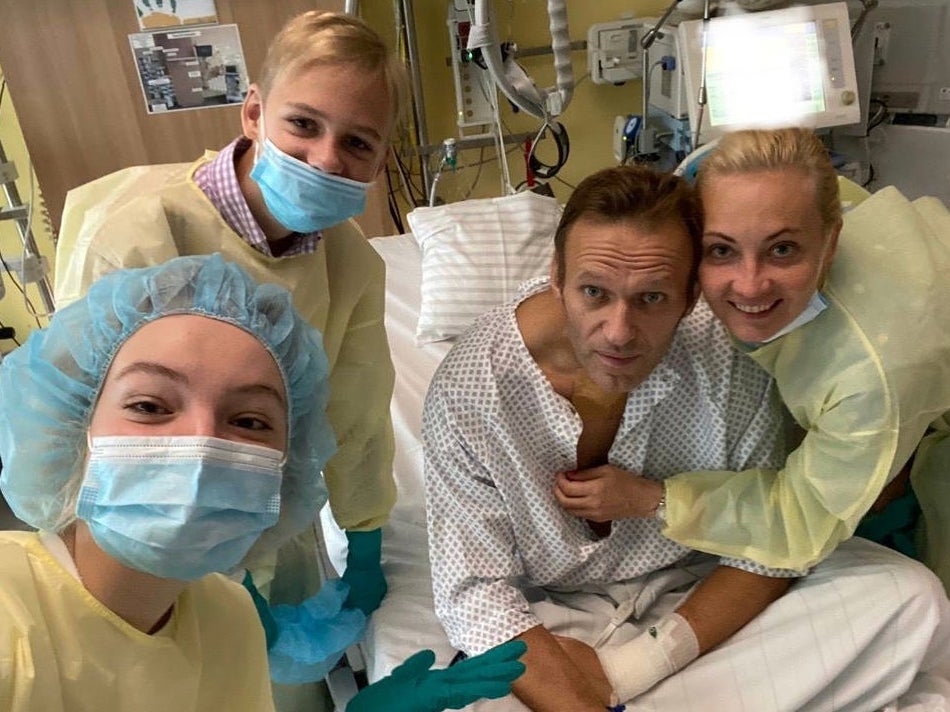
2024
9 January - Navalny sarcastically heaped praise on the polar conditions at the prison north of the Arctic Circle where he was moved to shortly before Christmas. In a post on the Telegram messaging app Navalny said he had been put in a punishment cell for his attitude as soon as he left quarantine at the so-called “Polar Wolf” prison colony. He said that walking for half an hour in those temperatures you “manage to grow a new nose, new ears and new fingers.”
11 January - Navalny appeared before a Supreme Court judge by video link on Thursday to argue for the right to longer meal breaks and access to more books in prison. Wearing a black prison uniform and standing behind bars in a small, bare room, Navalny, 47, appeared gaunt but spoke animatedly, at length and without notes.
17 January - From his penal camp Navalny, said that Putin’s state would one day crumble along with the post-Soviet elite which he cast as venal, power-hungry and duplicitous. “Lies, lies and nothing but lies. It will collapse and crumble. Putin’s state is not viable. One day we will look at his place and he won’t be there.”
23 January - Navalny was placed in solitary confinement for 10 days for “incorrectly introducing himself” to a guard, his spokesperson said.
16 February - Russia’s prison agency has said that imprisoned opposition leader Navalny has died. He was 47.
Additional reporting by agencies
